Search Results
Showing results 61 to 80 of 98
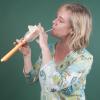
Waterbottle Membranophone
Source Institutions
In this activity, you'll use a straw, a water bottle and a paper tube to make an instrument that's very much like a saxophone.
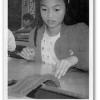
Clay Bridges
Source Institutions
In this activity, learners make bridges using an oil-based modeling clay (plasticene). The instructions include discussion questions for both before and after bridge building.
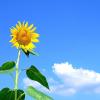
What Color is Your Air Today?
Learners develop awareness and understanding of the daily air quality using the Air Quality Index (AQI) listed in the newspaper or online.
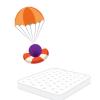
Solve The Fall
Source Institutions
In this twist on a classic design challenge, learners will try to stop a bouncy ball from bouncing as they explore how to control the fall of an object.

Witches' Potion Demonstration
Source Institutions
In this chemistry demonstration, learners will discover that phenolphthalein is an acid/base indicator. One learner will read a poem about four witches making a potion.
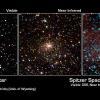
Colors of Stars
Source Institutions
In this activity, learners observe colors in the flame of a burning candle to explore connections between matter, light, color and temperature -- basic concepts of matter and energy.
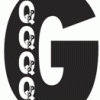
Fill it to Capacity
Source Institutions
In this math lesson, learners rotate through six estimating and measuring centers. First, learners read the book, "Room for Ripley" by Stuart J.
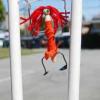
Gymnast
Source Institutions
In this physics activity, learners build a toy with a figure that spins around like a gymnast on the high bar.

Secret Goldenrod Messages
Source Institutions
In this activity, learners write invisible messages on goldenrod paper, and make the message appear and disappear using acids and bases.
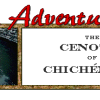
Solving Dissolving
Source Institutions
The Sacred Cenote at Chichén Itzá is a sink hole, or well, containing groundwater. In this activity, learners create their own cenote using chalk, limestone, acids, and rain water.
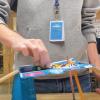
Build a Bridge
Source Institutions
In this activity, learners use design thinking to design and build their own bridge out of household materials including adhesives and/or connectors.
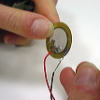
Electric Cup Guitar
Source Institutions
Make a one-string "guitar" by stringing a cup with some fishing line. You amplify the plucking of the string by placing a piezo contact microphone and mini battery powered amplifier inside the cup.
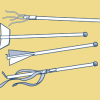
Blast Off!
Source Institutions
Students design and create their own air-powered rockets, in this hands-on activity.
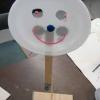
Bobbing Eyeballs
Source Institutions
In this activity, learners use simple materials and basic tools to construct a special toy to explore pendulums. As the head of the toy bobs one way, the eyeballs bob the other way.
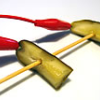
Pickle-oh!: Musical Pickle Instrument
Source Institutions
What's a Pickle-Oh? Two pieces of pickle on a stick are connected to a Pico Cricket (micro controller). When you slide the pickles apart the note changes.
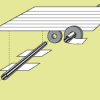
Blow It Away
Source Institutions
In this activity, learners design wind-powered cars out of simple household materials. Students have fun designing and then racing their vehicles around the room.
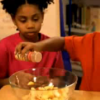
Applesauce
Source Institutions
In this "Sid the Science Kid" activity from Episode 109: The Perfect Pancake, learners make applesauce to explore irreversible change.
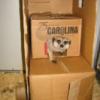
Animal House
Source Institutions
The goal of this activity is to design, build and test a house or toy for an animal.
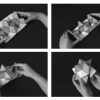
Exploring a Complex Space-Filling Shape
Source Institutions
In this activity, learners build a paper stellated rhombic dodecahedron, a three-dimensional 12-pointed star.

Polymers are Chains (K-2)
Source Institutions
In this activity, learners make a paper model of a polymer, then make Silly Putty, an actual polymer.
